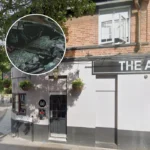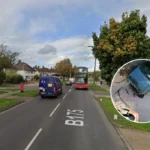Key Points:
- Event Cancellation: A planned daytime silent disco in a former nursery play area was cancelled by Hackney Council on Tuesday, July 15.
- Reason for Cancellation: The council denied permission due to a “misunderstanding” of licensing rules and numerous noise complaints from neighbours regarding previous “loud DJ parties.”
- Organiser: A local record shop was behind the proposed events.
- Community Impact: Neighbour complaints highlighted concerns over noise levels.
Hackney’s Quiet Revolution: Police Intervene in Daytime Silent Disco Plans
Hackney, UK – Plans for a unique daytime silent disco, set to transform a former nursery play area into a vibrant community hub, have been thwarted by Hackney Council. On Tuesday, July 15, the council officially denied permission to a local record shop, citing a “misunderstanding” of crucial licensing rules and a deluge of complaints from area residents about prior “loud DJ parties.”
Why Was Permission Denied?
The decision to scupper the silent disco comes after neighbours voiced significant concerns over noise disturbances emanating from the venue. While the concept of a silent disco typically involves participants listening to music through headphones, thus minimising external noise, the council’s refusal points to issues with previous events organised by the record shop. These past gatherings, described by neighbours as “loud DJ parties,” appear to have created a history of disruption that ultimately influenced the council’s ruling. The “misunderstanding” of licensing rules suggests that the organisers may not have fully complied with, or correctly interpreted, the necessary regulations for hosting such events in a residential area. This highlights the importance of adhering to local authority guidelines to ensure community harmony and prevent public nuisance.
What Are the Licensing Implications?
Licensing rules are fundamental in regulating public events, especially those involving music and large gatherings. They are designed to manage potential impacts on local communities, including noise pollution, public safety, and traffic. The Hackney Council’s emphasis on a “misunderstanding” of these rules suggests a lapse in the organisers’ due diligence or an oversight in their application process. This situation serves as a stark reminder for event organisers to meticulously review and comply with all local licensing requirements to avoid similar setbacks. The council’s swift action underscores its commitment to upholding residents’ right to peace and quiet, particularly in areas like former nursery play areas that are typically associated with tranquility.
What Happens Next for the Record Shop and Residents?
For the local record shop, this denial represents a significant hurdle in their efforts to utilise the former nursery space for community events. They will now need to re-evaluate their proposals, address the identified licensing issues, and potentially engage in dialogue with both the council and local residents to build trust and find a mutually agreeable path forward. For the neighbours, the council’s decision offers a reprieve from the disturbances they previously experienced. This outcome reinforces the power of community feedback in influencing local governance and protecting residential amenity. The incident also brings to the forefront the delicate balance between fostering vibrant local culture and preserving the quality of life for residents in urban environments.



